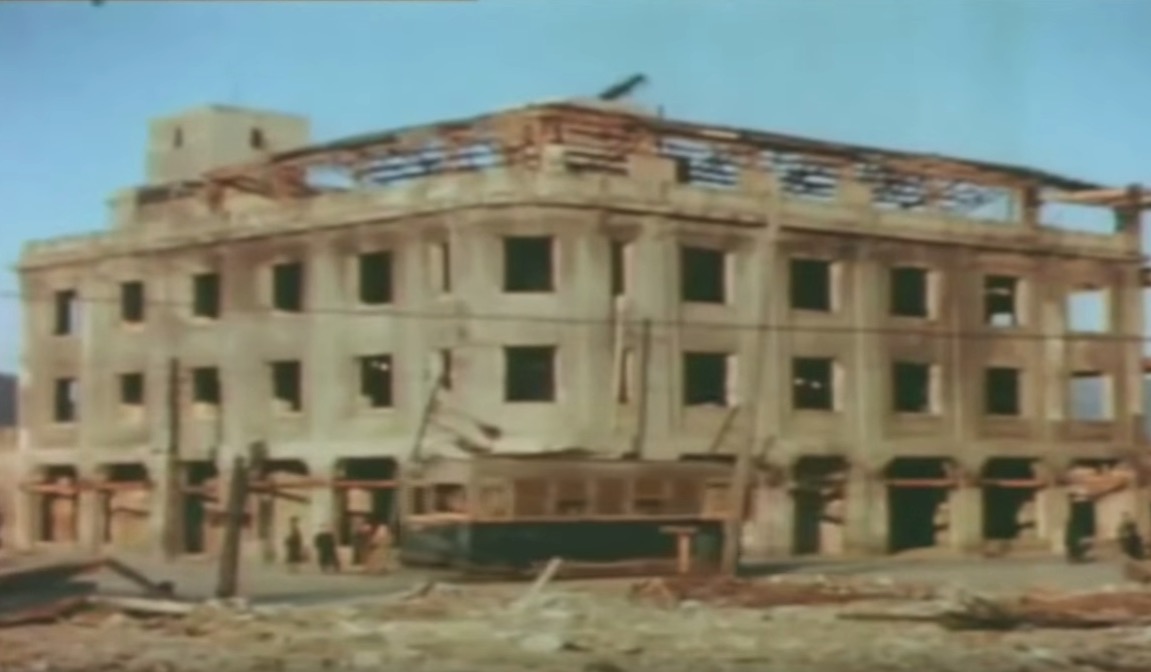70 years after the A-bomb destroyed Hiroshima, the BBC looks at what survived


A free daily email with the biggest news stories of the day – and the best features from TheWeek.com
You are now subscribed
Your newsletter sign-up was successful
On Aug. 6, 1945, the U.S. dropped a first atomic bomb on Japan, instantly laying waste to Hiroshima and 40 percent of its population, killing 140,000 people by the end of the year. At 8:15 a.m. in Hiroshima on Thursday, 70 years after the blast, Prime Minister Shinzo Abe and delegates from 100 countries gathered at the Hiroshima Peace Memorial, or Atomic Bomb Dome, to mark the anniversary and listen to Japan's calls for an end to nuclear weapons.
The Atomic Bomb Dome is one of the few buildings in central Hiroshima that survived the explosion, but it isn't the only one, notes the BBC's Rupert Wingfield-Hayes. The Bank of Japan building also survived, as did some trees on the grounds of Hiroshima Castle and at least one tram car. That car, restored, was in normal circulation until about three years ago, when it was retired to a route for tourists, Wingfield-Hayes says, noting that Hiroshima's trams are a symbol of rejuvenation and survival in the city, since the Japanese had some lines up and running just three days after the A-bomb hit. You can watch the BBC's short, unexpected tour of what survived the atomic bomb below. Peter Weber
A free daily email with the biggest news stories of the day – and the best features from TheWeek.com
The Week
Escape your echo chamber. Get the facts behind the news, plus analysis from multiple perspectives.

Sign up for The Week's Free Newsletters
From our morning news briefing to a weekly Good News Newsletter, get the best of The Week delivered directly to your inbox.
From our morning news briefing to a weekly Good News Newsletter, get the best of The Week delivered directly to your inbox.
Peter has worked as a news and culture writer and editor at The Week since the site's launch in 2008. He covers politics, world affairs, religion and cultural currents. His journalism career began as a copy editor at a financial newswire and has included editorial positions at The New York Times Magazine, Facts on File, and Oregon State University.
